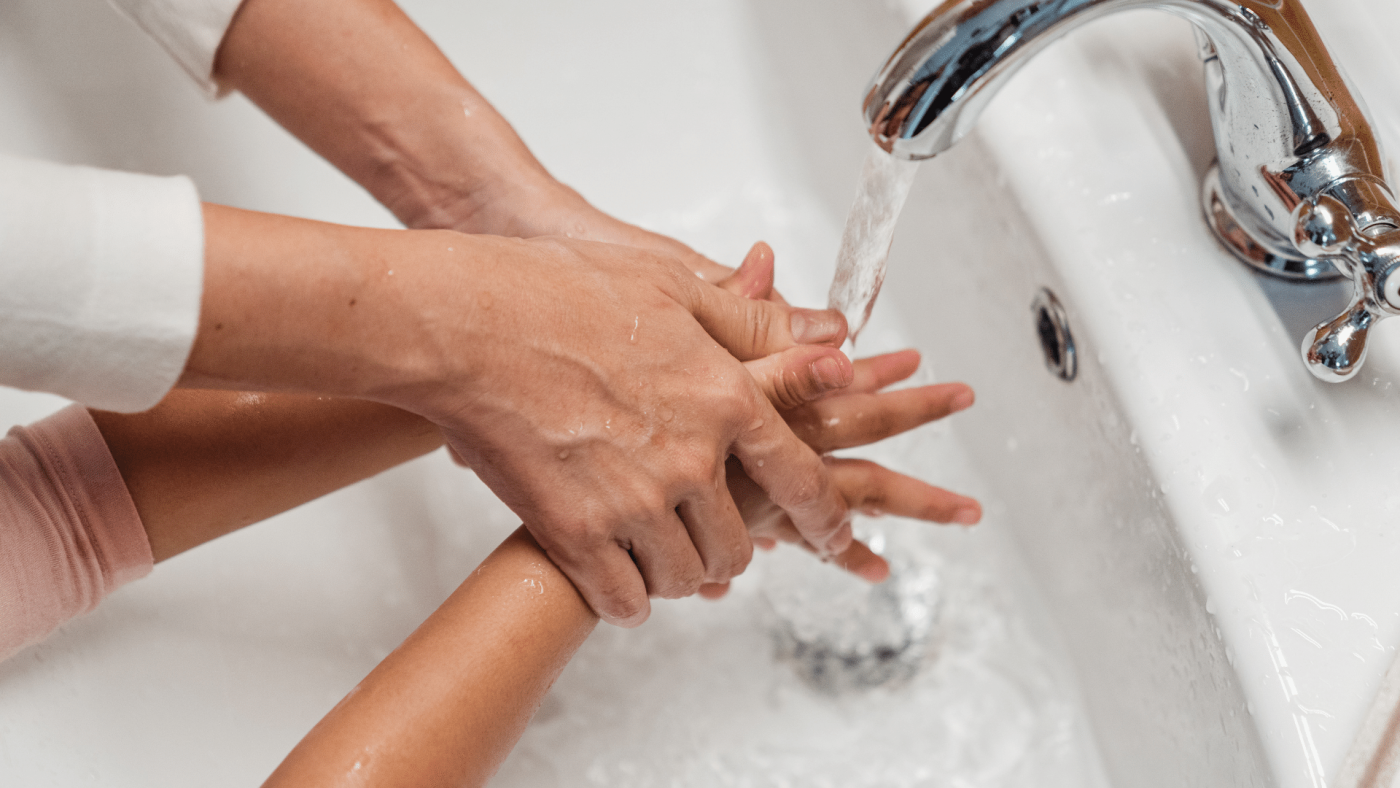Maintaining proper personal hygiene is not just about looking and feeling good; it’s about prioritizing your health and well-being. In this comprehensive guide, we’ll delve into the fundamentals of personal hygiene, exploring what is a step in practicing correct personal hygiene, why it’s essential, what practices are involved, and the benefits it brings to your life.
What is Personal Hygiene?
Personal hygiene encompasses a range of habits and practices aimed at promoting cleanliness and preventing disease. It involves taking care of your body, including oral hygiene, handwashing, and regular bathing, among other activities.
Why Is Personal Hygiene Important?
What is a step in practicing correct personal hygiene? Wash your hands regularly with soap and water, especially before eating, after using the restroom, and after coughing or sneezing. Personal hygiene is crucial for overall health and well-being. Good hygiene practices help prevent the spread of germs and bacteria, reducing the risk of infections and illnesses. Additionally, maintaining proper hygiene can boost self-confidence and improve social interactions.
Understanding Proper Hygiene Practices
To practice good personal hygiene, it’s essential to understand the proper techniques and habits involved. From washing your hands frequently to brushing your teeth regularly, each practice plays a vital role in keeping you clean and healthy.
What Are the 7 Personal Hygiene?

What is a step in practicing correct personal hygiene? Maintaining a clean and organized living space to reduce exposure to allergens and pathogens.
A comprehensive personal hygiene checklist includes seven key practices:
- Regular handwashing with soap and water
- Daily bathing or showering
- Brushing and flossing teeth twice a day
- Washing hair regularly
- Changing and washing clothes and undergarments frequently
- Keeping nails clean and trimmed
- Practicing safe food handling and preparation
The Fundamentals of Correct Personal Hygiene
Correct personal hygiene involves more than just following a checklist. It’s about developing habits that promote cleanliness and prevent the spread of germs and bacteria. Consistency is key to mastering proper hygiene practices.
Hygiene Habits for Daily Routine
Incorporating hygiene habits into your daily routine is essential for maintaining cleanliness and preventing illness. Establishing a routine ensures that hygiene practices become second nature, contributing to overall well-being.
Hygiene Habits for Daily Routine
Best Practices for Cleanliness
- Wash your hands thoroughly with soap and water for at least 20 seconds, especially after using the bathroom, touching surfaces in public places, or handling food.
- Take a shower or bath daily to remove dirt, sweat, and bacteria from your skin.
- Brush your teeth at least twice a day and floss once a day to prevent tooth decay and gum disease.
- Wash your hair regularly to remove dirt, oil, and product buildup.
- Change your clothes and undergarments daily, and wash them regularly to keep them clean and fresh.
Steps for Correct Personal Hygiene
- Start by establishing a regular hygiene routine that includes all necessary practices.
- Use products that are suitable for your skin and hair type to avoid irritation and maintain cleanliness.
- Pay attention to personal grooming, including nail care, hair removal, and skincare.
- Stay informed about proper hygiene practices and update your routine as needed to stay current with best practices.
Maintaining Cleanliness in Daily Life
Personal hygiene items are essential for overall health and well-being. By practicing good hygiene habits, you can reduce the risk of infections, maintain a positive self-image, and promote confidence in social interactions. It’s not just about how you appear to others; it’s about how you feel within yourself. When you prioritize cleanliness in your daily life, you’re taking proactive steps to safeguard your health and enhance your overall well-being.
Elevating Men’s Personal Hygiene: Strategies for Success
Men’s personal hygiene needs may differ from women’s, but the principles remain the same. By incorporating proper hygiene practices into their daily routines, men can improve their health and well-being. From regular grooming routines to paying attention to oral and genital hygiene, men can elevate their personal hygiene by adopting simple yet effective strategies. By prioritizing cleanliness, men can boost their confidence and feel more comfortable in their own skin.
Personal Hygiene Tips for Women: A Comprehensive Guide
Women may have unique hygiene needs, particularly related to menstruation and reproductive health. By following a comprehensive hygiene routine, women can maintain cleanliness and prevent infections. From choosing the right feminine hygiene products to practicing proper intimate care, women can ensure their well-being and comfort. By staying informed about their bodies and adopting healthy hygiene practices, women can feel empowered and confident in every aspect of their lives.
What Is a Step in Practising Correct Personal Hygiene Strategies?
Maintaining proper hygiene practices is crucial for overall health and well-being. It involves adopting effective strategies to prevent the spread of germs and bacteria, ultimately reducing the risk of infections and illnesses. By incorporating these strategies into your daily routine, you can create a cleaner and healthier environment for yourself and those around you. From handwashing to oral hygiene, each practice plays a vital role in promoting good health and hygiene.
The Power of Proper Handwashing Techniques
Proper handwashing is one of the most effective ways to prevent the spread of germs and bacteria. It’s a simple yet powerful practice that can significantly reduce the risk of infections and illnesses. By washing your hands frequently and thoroughly with soap and water, you can remove dirt, germs, and harmful bacteria from your hands, preventing them from spreading to surfaces or other people. Remember to scrub all surfaces of your hands, including between your fingers and under your nails, for at least 20 seconds to ensure thorough cleanliness.
Banishing Body Odor: Effective Hygiene Practices
Body odor can be a source of embarrassment and discomfort, but with proper hygiene practices, you can keep it at bay and feel fresh and confident. Regular bathing or showering helps remove sweat and bacteria from your skin, reducing the likelihood of body odor. Additionally, using deodorant or antiperspirant can help mask odors and keep you feeling fresh throughout the day. Choosing breathable fabrics for your clothing and practicing good personal hygiene habits, such as changing your clothes regularly, can also contribute to minimizing body odor and maintaining cleanliness.
Conquering Bad Breath: Tips for Fresh Oral Hygiene
Bad breath can be a sign of poor oral hygiene or underlying dental issues, but with the right practices, you can conquer it and maintain fresh breath and a healthy mouth. Brushing your teeth at least twice a day with fluoride toothpaste and flossing daily helps remove plaque and food particles that can contribute to bad breath.
Using mouthwash can further freshen your breath and kill bacteria in your mouth. Additionally, visiting your dentist regularly for check-ups and professional cleanings can help prevent dental issues that may cause bad breath. By prioritizing oral hygiene and adopting these tips, you can enjoy fresh breath and a confident smile.
Benefits of Good Personal Hygiene
Benefits of Good Personal Hygiene
Maintaining good personal hygiene extends beyond physical cleanliness; it also positively impacts mental and emotional well-being. When you look and feel clean, you’re more likely to feel confident and self-assured. Good personal hygiene can boost self-esteem by enhancing your self-image and promoting a sense of pride in your appearance. This improved self-esteem can translate into various aspects of your life, from social interactions to professional success. Additionally, good personal hygiene contributes to overall quality of life by reducing the risk of infections and illnesses, promoting physical health, and enhancing overall happiness and well-being.
Good Personal Hygiene Can Help to Develop Positive Self-esteem
When you look and feel clean, you’re more likely to feel confident and self-assured. Good personal hygiene can boost self-esteem and improve your overall quality of life. By practicing regular hygiene habits, such as bathing, grooming, and maintaining oral hygiene, you can enhance your appearance and feel more comfortable in your own skin. This increased confidence can positively impact various areas of your life, from personal relationships to professional success. Additionally, good personal hygiene demonstrates self-care and respect for oneself, further contributing to a positive self-image and improved self-esteem.
Personal Hygiene and Health
Maintaining good personal hygiene is essential for preventing the spread of infectious diseases and promoting overall health and well-being. By practicing proper hygiene habits, you can reduce the risk of illness and enjoy a healthier lifestyle. Good personal hygiene involves practices such as regular handwashing, bathing or showering, oral hygiene, and cleanliness of clothing and living spaces. These habits help remove germs, bacteria, and other harmful pathogens that can cause infections and illnesses. By prioritizing personal hygiene, you not only protect yourself from diseases but also contribute to the health and well-being of those around you, creating a cleaner and safer environment for everyone.
Hygiene Hacks for Travelers: Staying Fresh on the Go
Traveling can disrupt your usual hygiene routine, but it’s essential to prioritize cleanliness, even when you’re on the go. Whether you’re embarking on a weekend getaway or a long-haul journey, maintaining personal hygiene is crucial for feeling fresh and comfortable throughout your travels. To stay clean and fresh on the go, consider packing travel-sized hygiene products, such as hand sanitizer, wet wipes, and travel-sized toiletries. These convenient essentials can help you maintain cleanliness and hygiene, even when access to traditional facilities is limited. Additionally, make use of public restroom facilities and rest stops to freshen up and take care of basic hygiene needs while traveling.
What is a step in practicing correct personal hygiene? Ensure you brush and floss your teeth twice daily to maintain oral health and prevent dental issues. By prioritizing cleanliness and hygiene during your travels, you can enjoy a more comfortable and enjoyable experience, wherever your adventures may take you.
Conclusion
Maintaining excellent personal hygiene is not only essential for health and well-being but also for self-confidence and social interactions. By understanding what is a step in practicing correct personal hygiene and incorporating it into your daily routine, you can enjoy the benefits of cleanliness and good health. Remember, mastering personal hygiene basics is a journey that requires consistency and dedication, but the rewards are well worth the effort.
Frequently Asked Questions And Answers
Which activity is an example of poor personal hygiene?
An example of poor personal hygiene is neglecting to brush your teeth regularly or failing to wash your hands after using the restroom.
Why is personal hygiene important?
Personal hygiene is essential for maintaining health and well-being. It helps prevent the spread of infectious diseases, reduces the risk of illnesses, promotes positive self-esteem, and enhances social interactions.
What are some common personal hygiene practices?
Common personal hygiene practices include regular handwashing, bathing or showering, brushing and flossing teeth, wearing clean clothes, maintaining oral hygiene, grooming, and using deodorant.
How can I maintain oral hygiene?
Maintain oral hygiene by brushing your teeth at least twice a day with fluoride toothpaste, flossing daily to remove plaque and food particles, using mouthwash to kill bacteria, and visiting your dentist regularly for check-ups and cleanings.







Leave a Reply